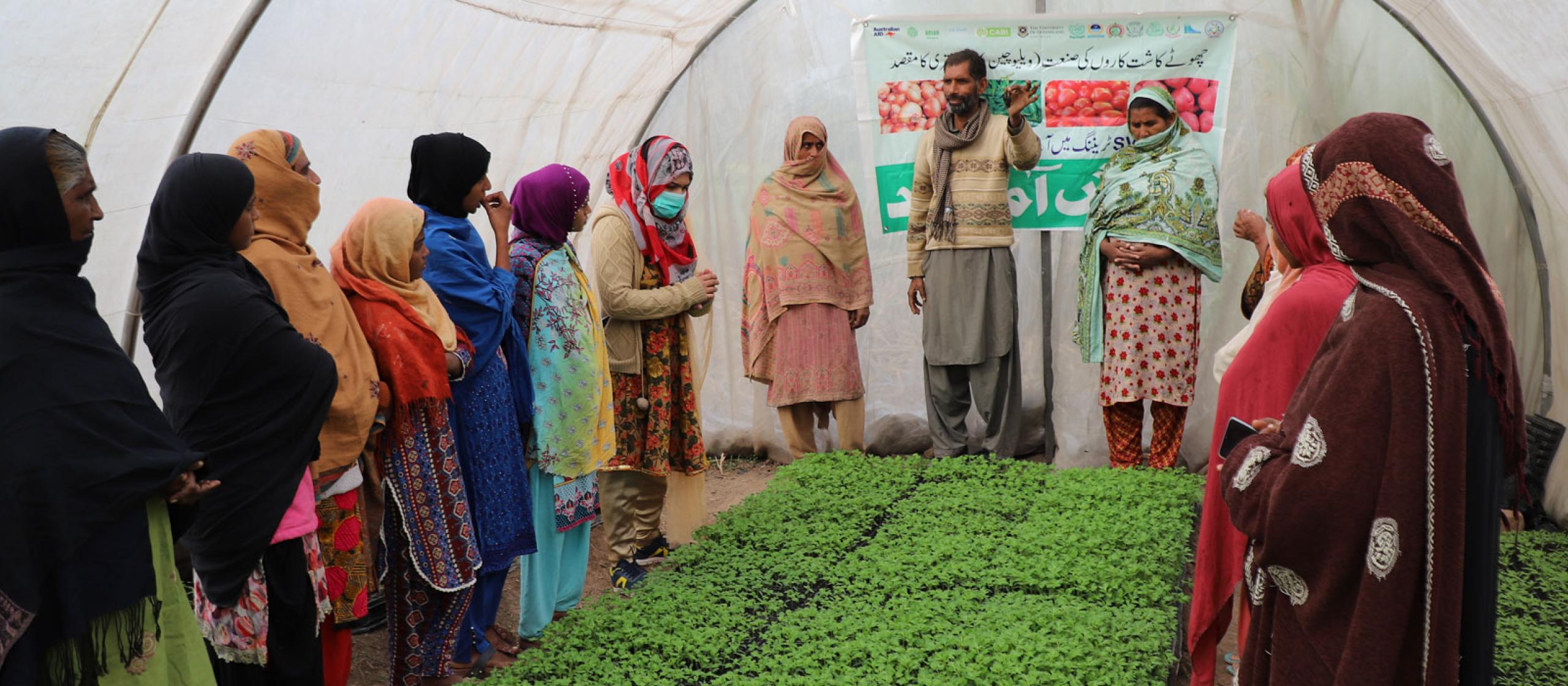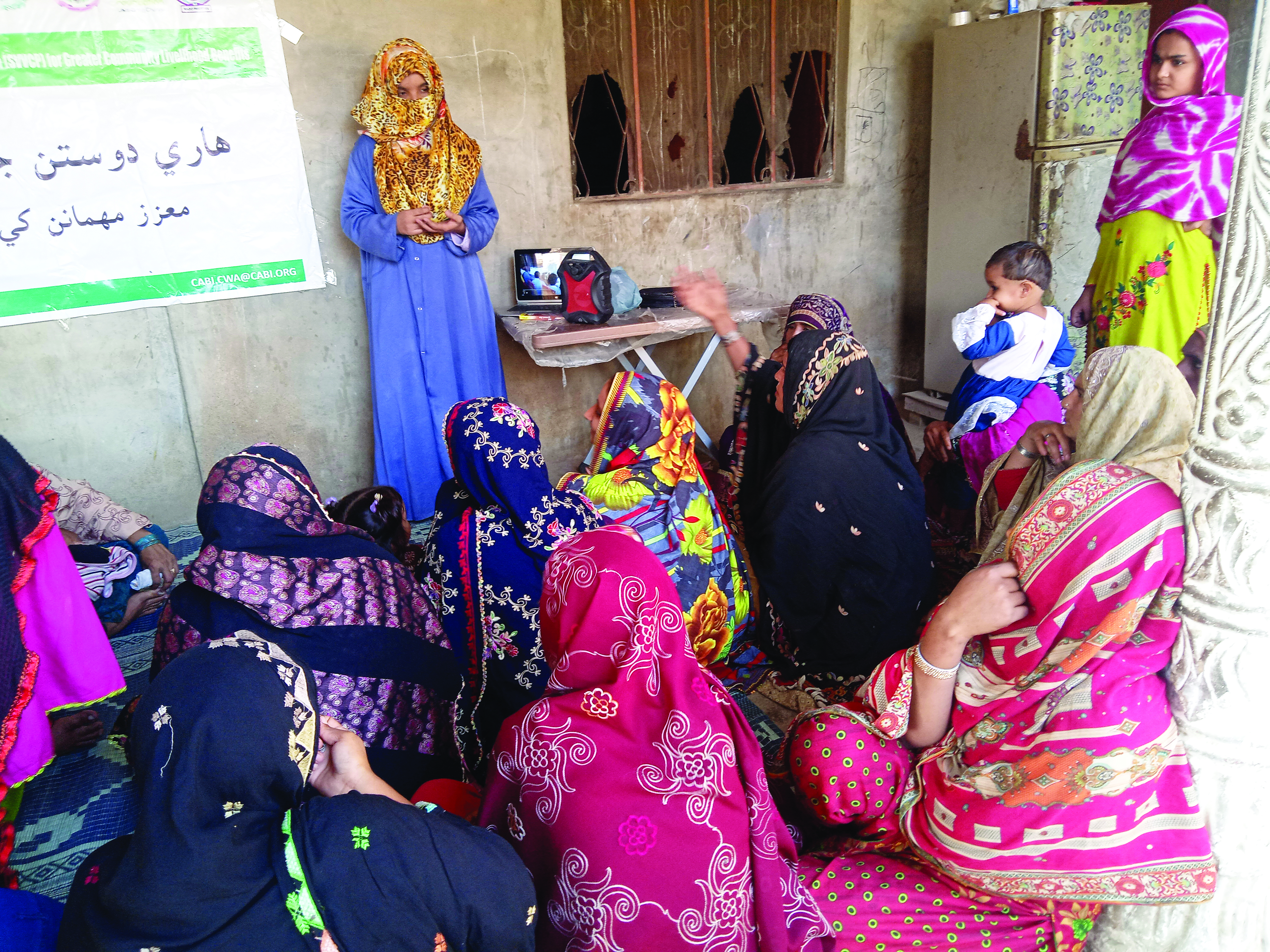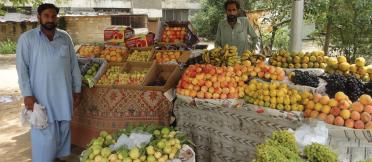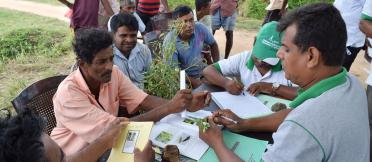The innovative use of female social mobilisers and a whole-of-family extension approach has created opportunities for women to participate in training to improve the value of vegetable crops and incomes for smallholder farmers in Pakistan.
Smallholders make up 70% of Pakistan’s farming community, in which men and women have defined roles in agricultural systems and social practices that can restrict the involvement of women.
The international not-for-profit organisation CABI (Centre for Agriculture and Bioscience International) has led a 5-year ACIAR-supported project to improve the vegetable value chains for smallholders, which concluded in December 2022.
The project focused on value chains for onions in the Sindh province, and for tomatoes and potatoes in the Punjab province. Developing a model for a gender-inclusive value chain was a fundamental part of the project.
CABI project manager Mr Muhammad Asif said social mobilisers employed in each of the 3 value chains played a critical role in the multidisciplinary research teams, helping to engage female farmers and farm workers to implement project activities.
‘Women have designated roles in farming, and these are often the roles that are crucial to improving the value of produce.
‘The project as a whole helped to move farmers from a production to a market-driven approach,’ said Mr Asif.
‘Whole families were involved in the value-chain discussions, so we were engaging youth with this new perspective as well.’
The project team directly trained 343 vegetable farmers (172 men, 135 women and 36 youth) in nursery production, crop management, post-harvest processes and marketing, indirectly reaching another 1,166 farmers (779 men, 291 women and 96 youth).
Mr Asif said the 67 project staff included 45 men and 22 women, who identified value-chain constraints and developed interventions to increase product quality and production efficiency. The result was a significant increase in household income and crop gross margins per acre for the 5 villages involved








